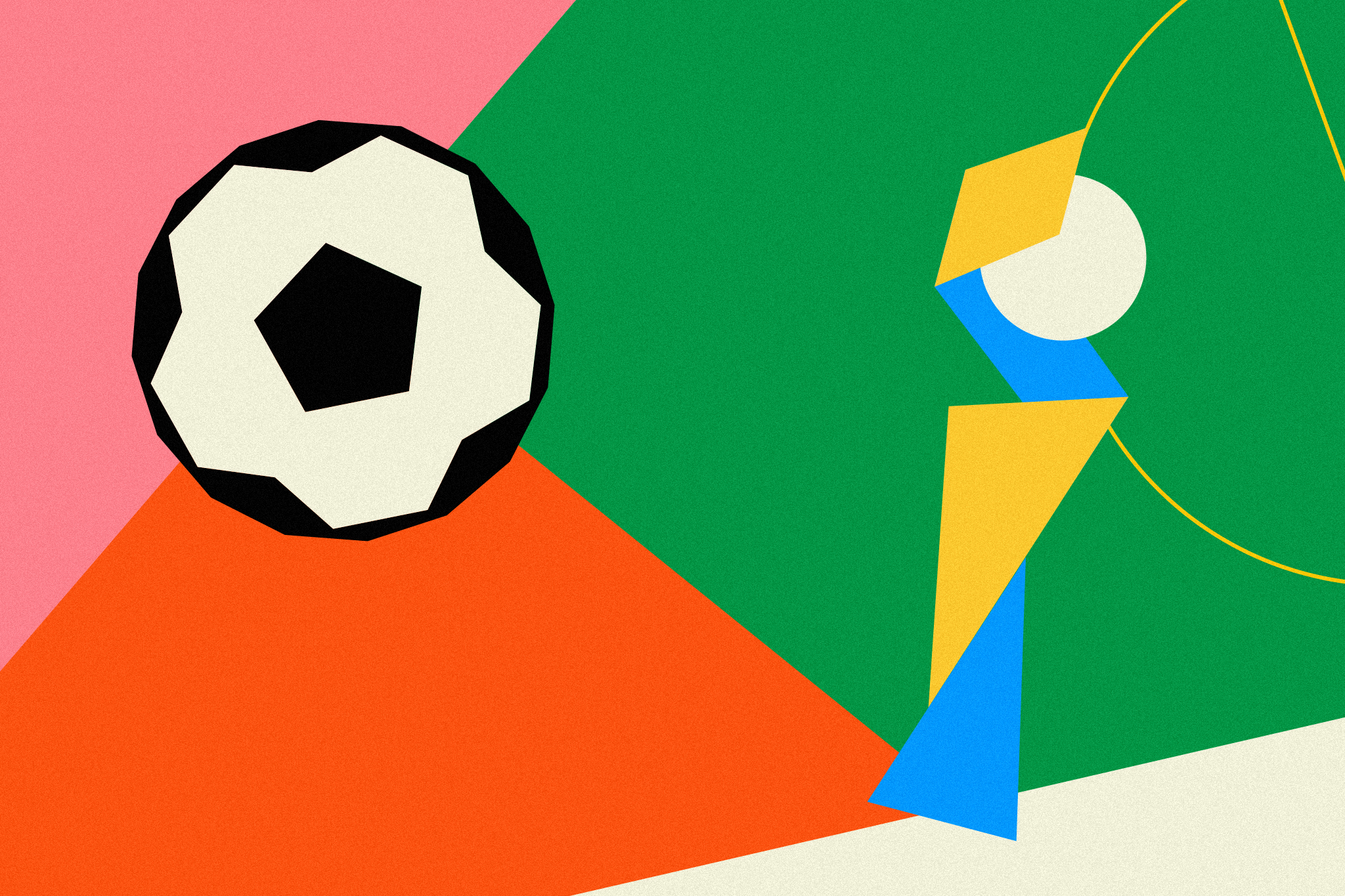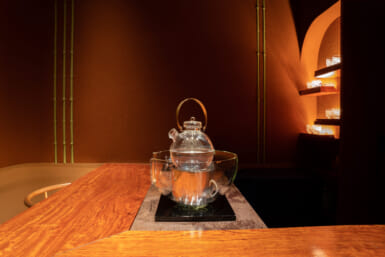The 2023 FIFA Women’s World Cup kicked off in Auckland earlier today with co-hosts New Zealand taking on Norway just two hours after two people died following a shooting in the city. The team known as Nadeshiko Japan begin their campaign in Hamilton this Saturday against debutants Zambia.
That match, as well as all the other games involving the 2011 winners, will be shown on NHK (mainly on the BS satellite channel) after the state broadcaster secured rights with just a week to spare. So, how will Japan fare? Here we take a closer look at Futoshi Ikeda’s side and analyze their chances down under. We begin, though, by looking back at their results in previous world cups.
Japan’s World Cup History
Japan have featured in every Women’s World Cup since the tournament began in 1991. They made little impact in the first five competitions, though, losing 12 of the 16 games they played. Things then changed in Germany in 2011. Led by the magnificent Homare Sawa, Nadeshiko Japan surprisingly defeated the host nation and Sweden to reach the final. There they met the highly fancied Americans, who led twice.
Both times, the underdogs came back to force the game to penalties, which Japan won thanks to the heroics of Ayumi Kaihori, becoming the first Asian side to win the tournament. The U.S. haven’t lost a World Cup match since and, four years later, wreaked revenge over Nadeshiko Japan with a thumping 5-2 victory in a repeat of the 2011 final. In 2019, Japan were defeated 2-1 in the second round by the Netherlands after extra-time, despite dominating the game.
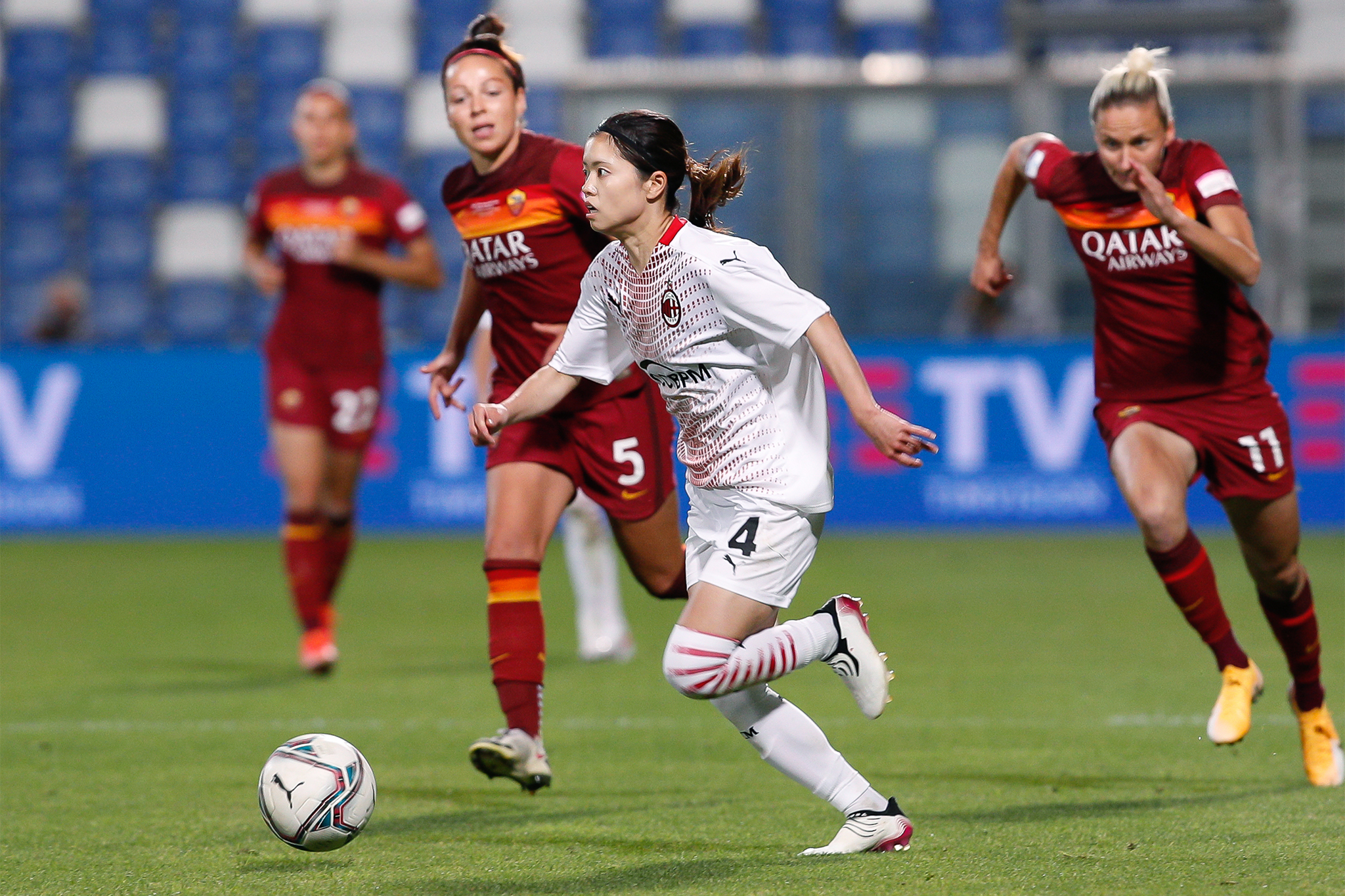
Yui Hasegawa
Key Player: Yui Hasegawa
Japan’s scorer in that loss to the Netherlands was energetic midfielder Yui Hasegawa. A versatile player who can operate as a deep-lying playmaker or in a more attacking role, she enjoyed a fine first season for Man City in the Women’s Super League (WSL) after joining from West Ham last September. The creative fulcrum of the Japan side, she is known for her deft touch and passing ability, though she’s also capable of scoring the odd spectacular goal, including an audacious chip from 30 yards for the Hammers against her future employers in 2021.
She began her career at Tokyo Verdy Beleza, making her Nadeshiko League debut at just 16. After being named in the league’s Best XI for four years consecutively from 2017 to 2020, she made the move to Europe to play for AC Milan before heading to England. She’s a hugely influential player for both club and country.
Ones to Watch: Maika Hamano and Aoba Fujino
Japan are going into the 2023 World Cup with the fourth youngest squad. This should come as no surprise given the fact that Ikeda is in charge. He led the Young Nadeshiko side to two consecutive U20 World Cup finals against Spain in 2018 and 2022, winning the first and losing the second. Three players from the 2022 side have been selected, including attackers Maika Hamano and Aoba Fujino, both aged 19.
Hamano, who won the Golden Ball and Silver Boot at the tournament, signed for Chelsea in January. She was subsequently loaned to Swedish side Hammarby IF and has so far hit seven goals in 17 games. Fujino, meanwhile, is unquestionably one of the most exciting players in the Women’s Empowerment (WE) League. A move overseas could be on the cards soon. The other member from Ikeda’s U20 final-reaching squad is Urawa defender Rion Ishikawa.
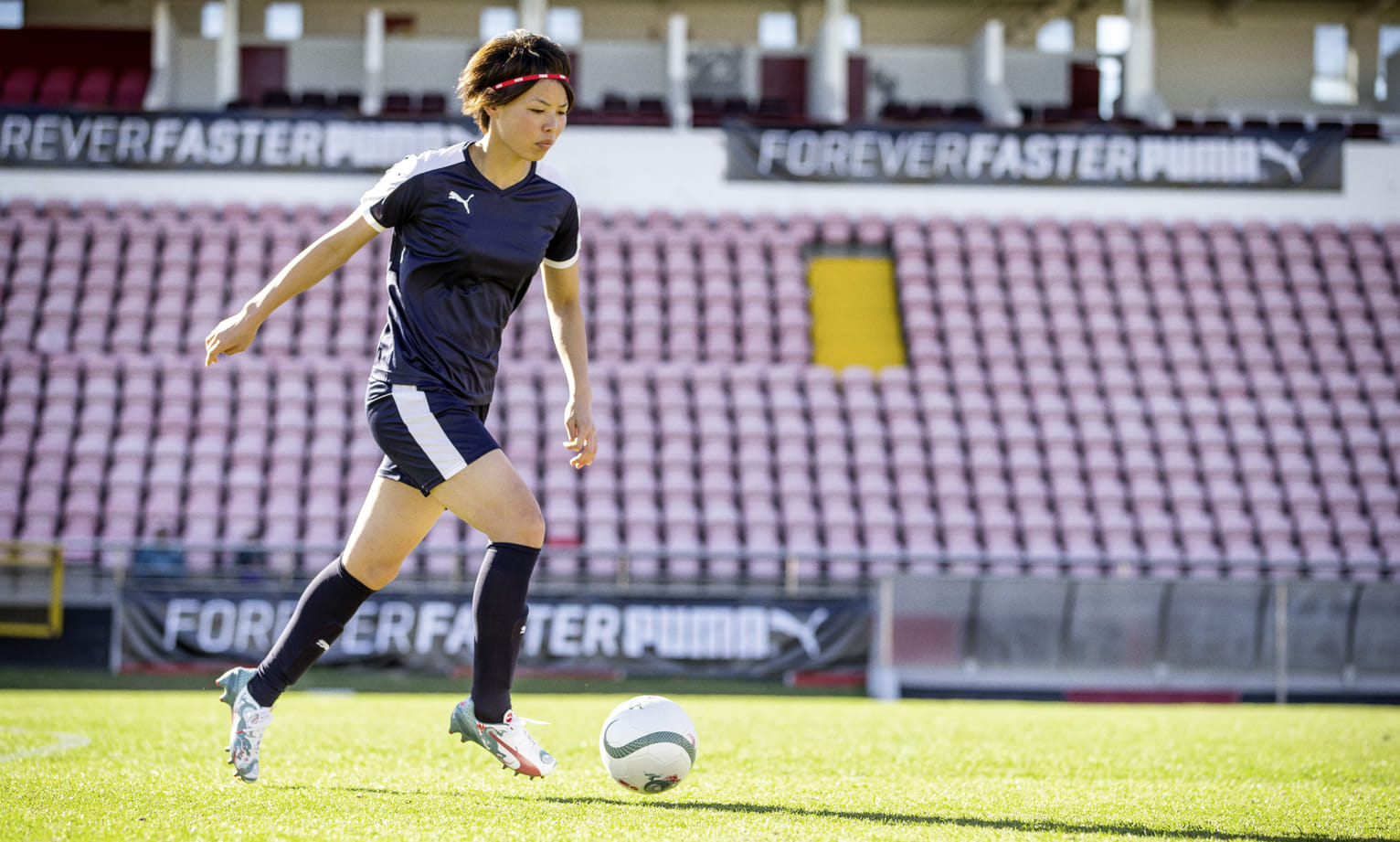
Saki Kumagai | Courtesy of Bennu Co., Ltd.
The Captain: Saki Kumagai
When former Scottish defender Alan Hansen said, “You can’t win anything with kids,” in 1995, he was left to eat his words as Man Utd’s youthful side picked up the Premier League trophy. In many ways, though, he was right. The Red Devils triumphed because they had a good mix of youth and experience. The fear for Nadeshiko Japan going into this tournament is they are lacking the latter.
Saki Kumagai is the only member of the squad aged over 30. This will be her fourth World Cup. In her first, in 2011, she fired home the winning penalty in the final before going on to become one of the most decorated players in the game, helping French side Lyon win seven domestic titles, six domestic cups and five European Champions League trophies. Last season, she was part of the Bayern Munich squad that lifted the Frauen-Bundesliga before leaving for Roma this summer. A Rolls-Royce of a player, she’s the true leader of the Japanese team.
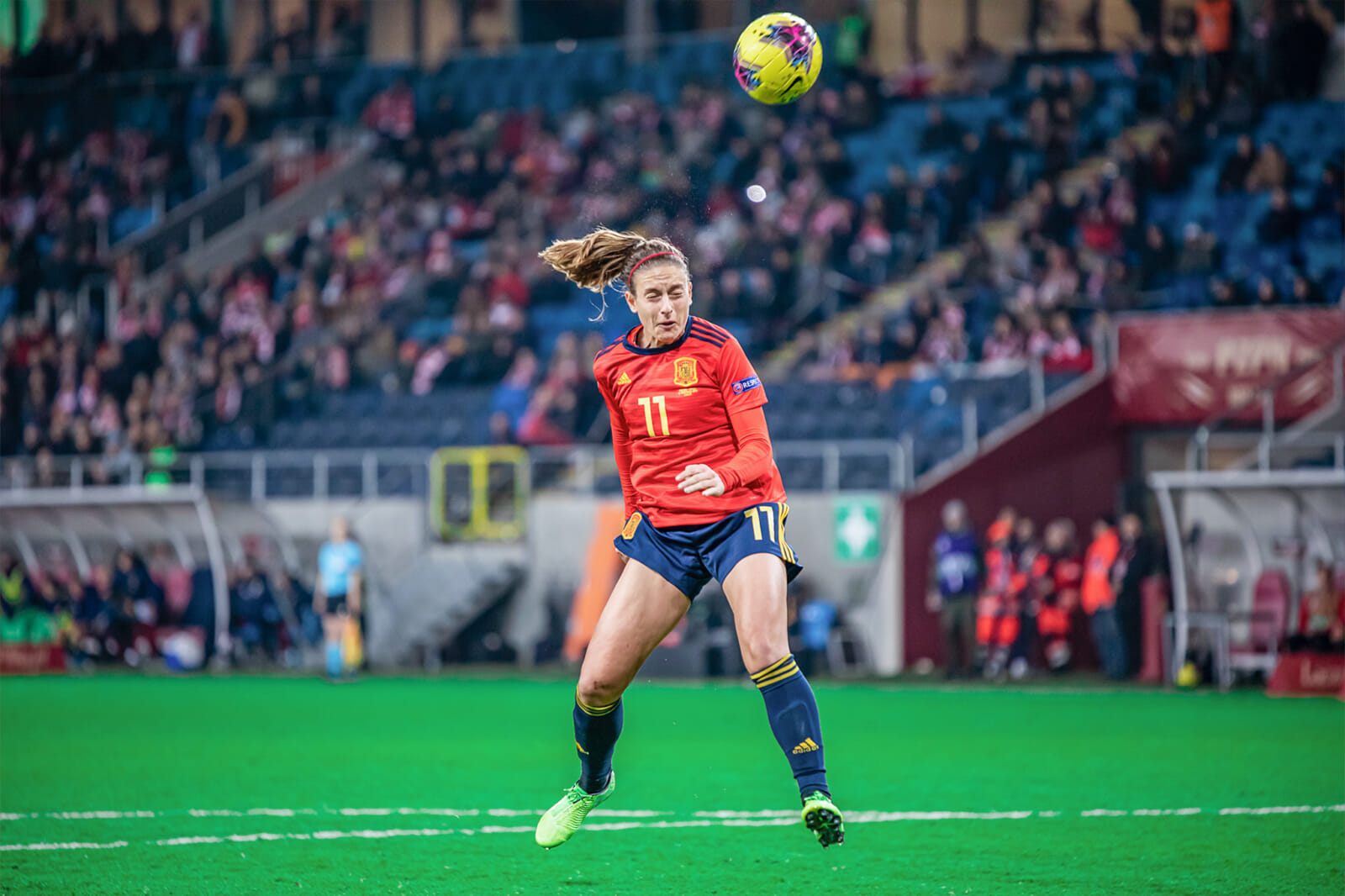
Alexia Putellas
Group Opponents
Japan’s opening opponents, Zambia, secured their place in the 2023 World Cup after reaching the semi-finals of last year’s Africa Cup of Nations. Their results since then have been mixed. In two games against South Korea in April, they conceded 10 goals. However, they showed their potential earlier this month with a stunning 3-2 victory against one of the pre-tournament favorites, Germany. Forwards Barbra Banda and Racheal Kundananji are their star players.
For Costa Rica, who Japan play in the second game, the player to watch is Raquel Rodríguez. The attacking midfielder is her country’s all-time leading goal scorer and will be crucial if Las Ticas have any chance of getting through the group. The most difficult opponents for Nadeshiko Japan should be Spain. Currently sixth in the world rankings, La Roja are seen as a genuine contender to take home the title and in Alexia Putellas, they arguably have the best female player on the planet.
The Verdict
Ranked 11th in the world, Nadeshiko Japan are in a bit of a transitional phase right now. Ikeda has a young, exciting group of players at his disposal, but there are still doubts as to whether they are physically strong or clinical enough to overcome the top teams in the world. The lack of experience in the squad could also be an issue.
The future does look bright for women’s soccer here, but perhaps this tournament has come too quickly for this young group. Their biggest strength is in midfield with Hasegawa and Hina Sugita of the Portland Thorns. They’re expected to fight with Spain for top spot in the group, with the European side seen as slight favorites. It’s hard to see Japan going on to win the tournament, but they said the same in 2011. And we all know what happened then.

